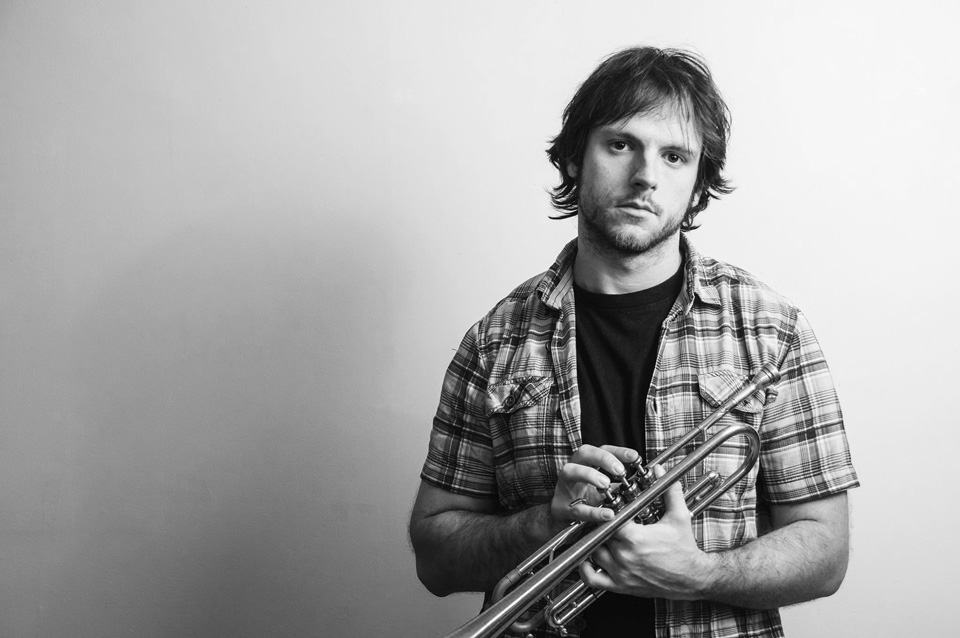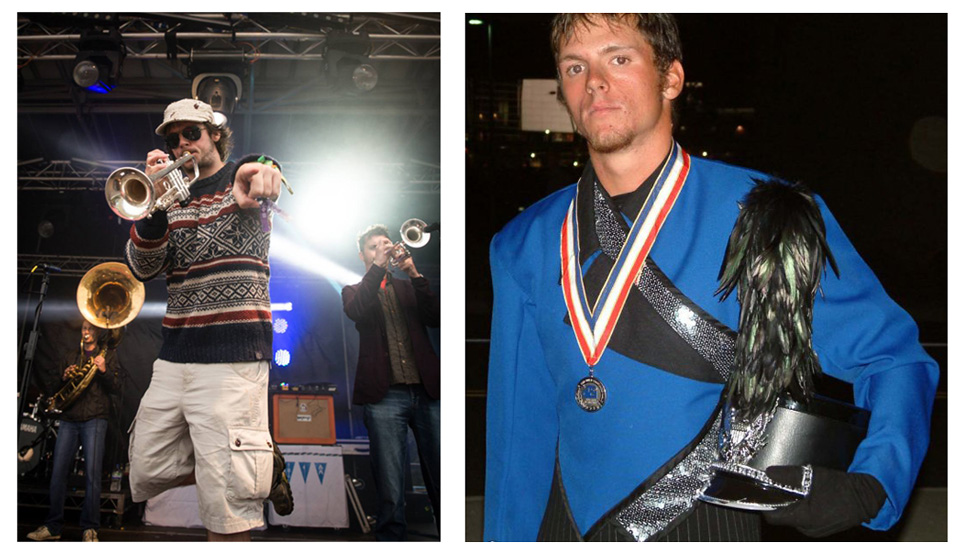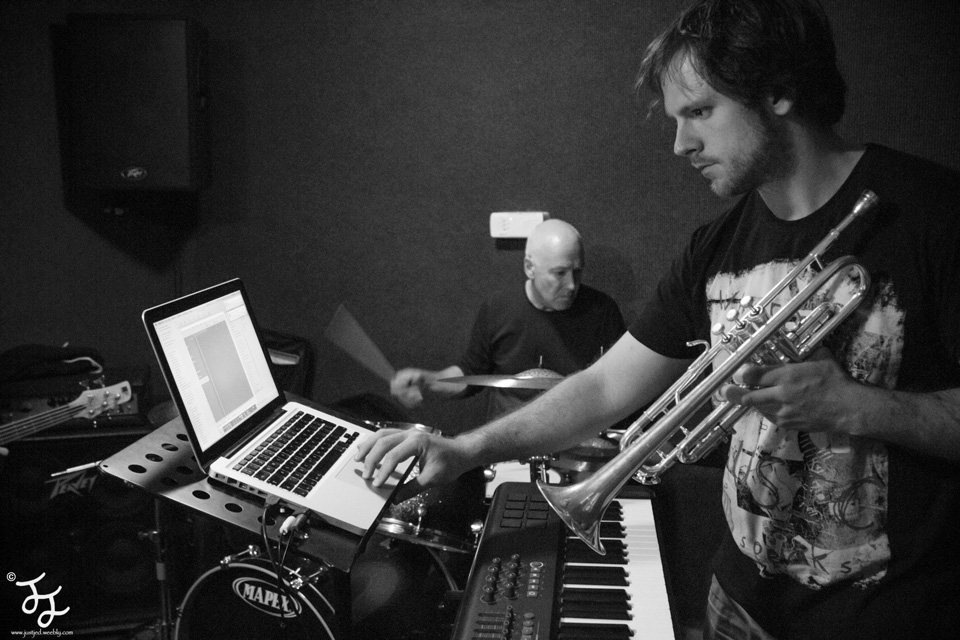Careers in Music – Music Production, Composition & Recording
2nd May 2023This is the second of our blogs highlighting various musical careers. In this blog we chatted with Joe Rodwell, a musician who wears various career ‘hats’ just like many in the creative industries. Joe is a music producer, arranger, composer and session musician. He’s a great example of someone who has mastered the tapestry of skills and roles that modern musicians need to forge their careers.
He recently arranged a version of Rhianna’s ‘Diamonds’ for the Netflix series ‘Bridgerton‘ (alongside producer Hannah V). Aston Martin featured his compositions and recordings at their centenary celebrations and he wrote and recorded the music for a recent TV advert featuring Michael Buble. Joe’s playing and recording sessions have seen him work alongside leading artists such as Shy FX, Tom Grennan, JP Copper and Jo Harrop.

Q: How did your musical journey begin?
A: I started out playing trumpet at the age of 8 in my local scout band. One of the instructors in the band started teaching individual lessons and got me started on the traditional grading system. With these 1-2-1 lessons I improved quite quickly over the years. During my teens I featured as a soloist and won various competitions both as an individual and with the ensembles.
Q: Did you play multiple instruments when growing up?
A: I also had piano lessons (which in turn became organ lessons). I was rubbish to start with(!) but as my trumpet playing improved, my interest in the piano jumped up alongside. I highly recommend to anyone starting out on a monophonic/brass instrument to learn a little piano as well. It’s laid out in such a linear way that learning harmony and composing are made visually much easier (at least for me).
I gained an interest in arranging music and the band were happy to lend me old scores to study, and eventually allowed me to arrange music for the band. In 2004 I toured with the Californian-based Blue Devils (still the most successful international drum corps of all time) which was the pinnacle of my marching band career.

Q: Did you study music in higher education?
A: Outside of the band, I was very much a computer nerd, and started working with basic music programming and recording software quite early on. This led me to study Music Technology, first at college in Bristol then onto university in London at the London College of Music.
In London, I decided to take performance as a minor and I officially started my long-term relationship with jazz! My high-note trumpet playing in the marching band world led well to big band lead playing. I had the range, I just had to learn how to swing and understand the dynamics within the band.
Marching bands tend to have you playing on the front on the beat, especially when further toward the back of the field as you need it to line up with the static percussion at the front. It took a little while to learn to be dead on, or slightly behind, where jazz wants to live.
Q: How was the transition from student life to professional musician?
A: It was undeniably tough in the beginning! Initially I was working office jobs in the day to pay the bills. I was fitting in everything musical I could on my lunch breaks and in the evenings.
My playing had taken a bit of a downward turn after a regrettable embouchure change in my 3rd year of university (a combination of a system that just didn’t work with the way I played, and a stubbornness from me to try and make it work) – so my lead trumpet days were diminished, and my want to chase the gigging scene had all but dissipated.
Eventually I became fed up that music was becoming such a small part of my life. So, I decided to study a part-time MA in composing for film and TV at Kingston University. During this time, I started working at Sony Playstation working as a transcriber for the SingStar games. It was great to have a job that was somewhat music related!
I’d also started playing trumpet again and I was gigging quite regularly. I was writing music for student short films and started slowly building a portfolio of my music. Eventually the SingStar role became part-time, and then finally I became a fully self-employed musician!

Q: How does your playing influence your music production & composition work?
A: I started working with my first artist in 2011 producing some of their music. Diving into music production led me to adding a few more instruments to my arsenal, and I’m ‘confidently adequate’ with keys, bass, guitar and (dare I say) sax, alongside the trumpet.
Once you have one instrument somewhat under your belt, learning another one is just the (often tedious) simple muscle-memory and physical co-ordination hours, but you have the musicality and theory side ticked already. For me as a composer, I like to know practically at least a little of how certain instruments are played to assist with the minutia of scoring.
Q: Do you also record music?
A: Increasingly, one of the main jobs I do now is remote recording. I’d been doing it for a while before Covid hit, but the amount of that kind of work has certainly grown since. I recommend to all instrumentalists to learn how to record themselves well! It’s a great tool for practice, as you’ll hear all the imperfections that are sometimes hard to spot in the moment of playing.
Recording often has improved my time, tone, and tuning. As a job, once you have a good (doesn’t have to be expensive) setup and a basic knowledge of one of the many recording software’s, it becomes quite a simple way of earning money from your abilities.
Q: How about your current playing commitments?
A: I still play in and co-run some function/wedding bands. Most players leaving college will know this is a way of making money from music. However, I think one of the best things about it is learning how to deal with clients and how to become a better entertainer.
I now have a good working balance of music production, composing, mixing and recording as a session musician – working primarily in commercial/pop music, with the occasional foray into adverts and film.